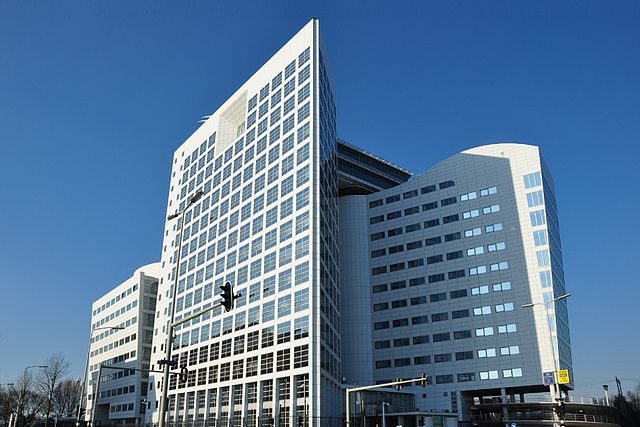Two of the US’s biggest asset management companies appeared in Texas on 15 December to defend their ESG investing and actions on climate change, in particular as it relates to the oil and gas industry.
Environmental, social, and governance, or “sustainable” investing — the terms are often used interchangeably — hasn’t historically been a hot political topic. But that has changed in recent years as more Republican politicians have seized on the strategy as part of the larger culture wars and found it a motivating issue for their base.
Texas is the largest US oil and natural gas producer. In August, Texas Comptroller Glenn Hegar issued a list of financial companies he deemed to be boycotting the energy industry and said were thus “subject to divestment.” On the list was BlackRock, the world’s largest asset manager, with $7.96tn in assets under management in the third quarter.
In prepared opening remarks, Dalia Blass, head of external affairs at BlackRock, said the firm’s relationships with Texas clients “are some of the oldest” and that many of its clients’ assets are invested in the state.
“On behalf of our clients, we are significant investors in public energy companies, including many here in Texas, such as Exxon, ConocoPhillips, Valero, Phillips 66, Occidental Petroleum and Cheniere,” Blass said. “We also have made significant private investments in Texas energy companies, ranging from a natural gas utility, to an energy storage company, to carbon capture. As of the end of the last quarter, on behalf of our clients, we had $107bn invested in public Texas energy companiesalone.”
Following her opening testimony, Blass faced repeated questions about issues such as BlackRock’s commitment to Climate Action 100+, an investor-led initiative to ensure the world’s largest corporate greenhouse-gas emitters take necessary action on climate change, and BlackRock’s investment performance.
READ FCA targets asset managers as ESG funds review kicks off
Texas Republican state senator Bryan Hughes, chairman of the committee on state affairs, pressed Blass on a statement on BlackRock’s website, “We have joined Climate Action 100+ to help ensure the world’s largest greenhouse gas emitters take necessary action on climate change,” asking, “Is the purpose of Climate Action 100+ for BlackRock and others to secure commitments from companies to take actions to reduce greenhouse gas emissions consistent with the Paris Agreement?”
Blass responded that BlackRock participates in Climate Action 100+ “to engage in dialogue with other participants, market participants, governments, so that we understand issues that are relevant to our clients.”
Not satisfied, Hughes repeated the question, insisting he wanted to get “to the bottom of” BlackRock’s role in trying to get companies to reduce greenhouse gas emissions.
He also asked about the purpose of Larry Fink’s annual letter to CEOs and quoted from a 2020 letter in which Fink wrote: “Climate change has become a defining factor in companies’ long-term prospects….But awareness is rapidly changing, and I believe we are on the edge of a fundamental reshaping of finance.”
Hughes asked what Fink meant by the phrase “fundamental reshaping of finance.”
“Did I read that right?” he said. “Before this letter, what was the purpose of finance from the perspective of an asset manager like BlackRock?”
Blass said the purpose of “the capital markets and finance has always been the same before this letter, during this letter, after this letter, and that’s looking for opportunities in the markets and managing risks in the markets to produce the best returns we can.”
Lori Heinel, global CIO for State Street Global Advisors, which manages more than $3tn, said the investment management arm of State Street is “proud to serve a wide range of Texas entities,” according to prepared testimony.
In Texas, SSGA manages $12.6bn for defined contribution retirement plans and $18bn for state and local public entities, Heinel said. Moreover, the investment servicing business of State Street Bank and Trust Company has more than $864bn in Texas-based assets under custody or administration.
Heinel noted that the firm is obligated to act as a fiduciary for its clients. “That duty is the basis for our approach to ESG,” she said. “We believe that company-specific material ESG factors — climate impacts, but also many others, such as supply chain management, data security and the treatment of hazardous waste, to name a few — have the potential to impact the performance of investments we manage for our clients. Our sole focus is on ensuring long-term value for our investors.”
Heinel also emphasised the firm engages with its portfolio companies, and doesn’t divest, and that SSGA funds own $144bn globally in energy related securities, with $65bn in firms based in Texas.
“We believe we are uniquely positioned and incentivised — and have a fiduciary duty — to encourage portfolio companies to consider long-term risks and opportunities in order to maximise long-term value for our clients,” she said.
Vanguard had been scheduled to appear at the hearing but was excused. The committee cited the firm’s decision this month to pull out of the Net Zero Asset Managers initiative, which encourages firms to reach net zero emission targets by 2050 and limit the rise in global temperatures.
Write to Lauren Foster at lauren.foster@barrons.com
This article was published by Barron’s, a fellow Dow Jones Group title
Want more on ESG? Sign up to FN’s newsletter here


The Most Read
Сryptocurrencies
Bitcoin and Altcoins Trading Near Make-or-Break Levels
Financial crimes
Thieves targeted crypto execs and threatened their families in wide-ranging scheme
Financial crimes
Visa Warning: Hackers Ramp Up Card Stealing Attacks At Gas Stations
News
Capitalism is having an identity crisis – but it is still the best system
Uncategorized
The 73-year-old Vietnamese refugee is responsible for bringing Sriracha to American consumers
Uncategorized
Electric Truckmaker Rivian, Backed By Amazon, Ford, Raises Whopping $1.3 Billion